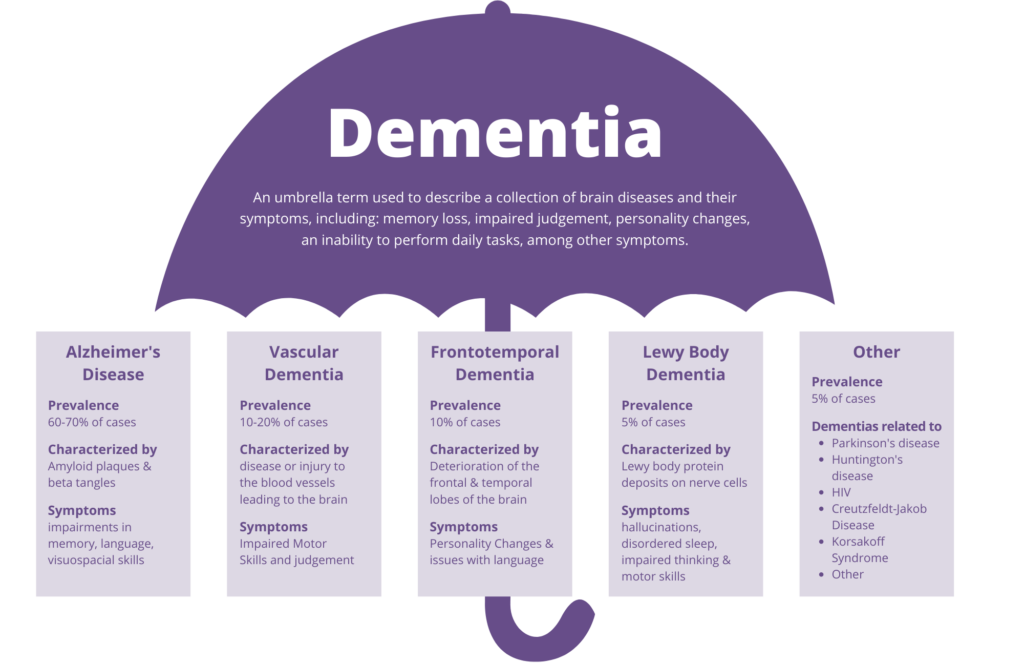By: Phyllis Fehr
People often ask: What is the difference between Alzheimer’s disease and Dementia?
Dementia is an umbrella term used to describe numerous neuro-cognitive diseases. You may hear people say that they don’t have dementia, they have Alzheimer’s disease, Lewy Body Dementia, Vascular Dementia, or many others.
The truth is that people living with all of the mentioned and other diagnoses ALSO live with dementia.

The symptoms of dementia can vary and may include:
- Experiencing memory loss, poor judgment, and confusion
- Difficulty speaking, understanding, and expressing thoughts, or reading and writing
- Wandering and getting lost in a familiar neighborhood
- Trouble handling money responsibly and paying bills
- Repeating questions
- Using unusual words to refer to familiar objects
- Taking longer to complete normal daily tasks
- Losing interest in normal daily activities or events
- Hallucinating or experiencing delusions or paranoia
- Acting impulsively
- Not caring about other people’s feelings
- Losing balance and problems with movement
Does knowing what type of dementia I have matter?
You may also hear people describe their diagnosis simply by saying that they have dementia. They do not say and may not know what their specific diagnosis is. Is this important? YES, IT DOES MATTER! It is important that you know and understands what type of dementia you have in order to move forward and develop an understanding and care plan that is best for you and your loved ones. Common symptoms and treatments will vary from diagnosis to diagnosis, so the more information you know, the better! It is useful for medical professionals to have in-depth knowledge and understanding of your diagnosis in prescribing medications and to recommend non-medical treatment options, such as vitamins and lifestyle changes that are tailored specifically to what you are going through. It may also be helpful for you or your family members to become connected to education or support groups that are most specific to your diagnosis.
What should I do if I suspect I might have dementia?
First off, don’t panic! The first thing you should do is make an appointment with your doctor. It is important to be self-aware but not to self-diagnose. Know that what you are experiencing may be a variety of things and the sooner whatever it is can be assessed by a qualified medical professional, the better off you are going to be!
For individual support and guidance about symptoms you may be experiencing or to learn about how to better support somebody who lives with dementia, please contact your local Alzheimer’s Society. (Hamilton office: 905-529-7030, www.alzda.ca)
About the Author: Phyllis Fehr is a wife, mother, grandmother and great grandmother to a blended family. Her career was as a Registered Nurse in both Intensive Care and Cardiac settings, as well as a sexual assault nurse examiner. Since being diagnosed with Alzheimer’s disease, Phyllis has become an international advocate for people living with dementia.

